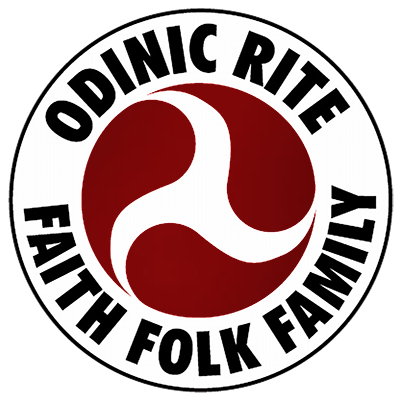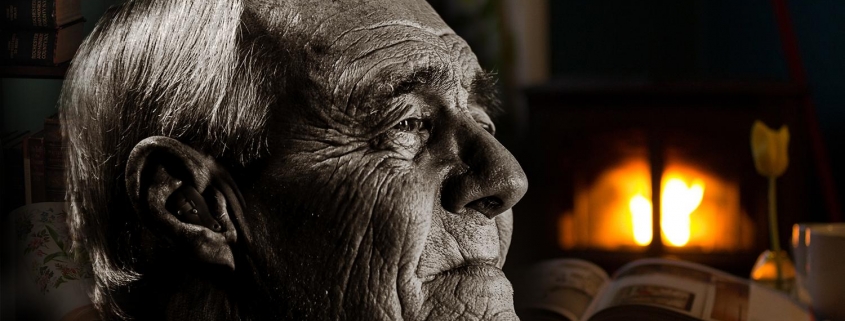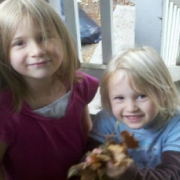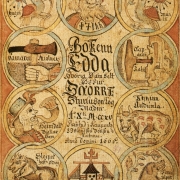The Great Theft – Part 1
By Wayne W AOR
The Old Man sat by the fire, the warmth easing the pains of aching bones. In the other room the voices were hushed, trying not to disturb him. He was old and deep down he knew his time was near, a year or so was perhaps all he had left. It was not something he feared, or dreaded; he had lived a good life, lived to see his children grow true and strong, lived to see them have fine children of their own. In many ways he was content with life, and death. Death was an inevitable and necessary part of the life cycle, and his death would, as foretold many years ago, fulfil a purpose. Death would bring reunion with his brothers-in-arms who had passed before him; he would see again old comrades and talk of times long gone. Most important of all he would be reunited with his wife, who had passed some years ago and left a hole in his heart, and his life, so big that at times it threatened to swallow him as well. He missed her smile, her touch, her smell; but most of all he missed her laugh.
Laughter from the other room roused him from his musings, lost in thought he had almost slipped quietly in to sleep. Not the way a good host should act but age had its advantages as well as its flaws and he had been commanded to go and rest while his family set to clearing away the table from the feast they had just enjoyed. He could hear the young ones playing with the gifts they had received, and the quiet rattle of pots and plates as the adults cleared away. It had been a year since he had had such a gathering of his family in his house. It was a shame that it only happened at this time of year now. But the modern world kept his family busy, sometimes too busy to make time for one another.
It was not that he felt lonely, he had a lifetime of memories to keep him company, and he was never truly alone. He just wished his family would stay in touch with one another more often. And not the kind of “in touch” that comes from an e-mail or a text message. Family was going to be important in the times ahead. He was old enough and had seen enough to know that troubled times were coming. The modern age had brought many marvels, but so much wisdom had been lost in the quest for this new knowledge that he feared that the simple truths that a folk need to see them through troubled times may well be lost before they realised they needed them. Still, he well knew the benefits of some of those modern inventions, living out here 20 miles from the nearest town the telephone was a life line in times of need. If only he could convince his family that in the cities of modernity and miracles they would find only sickness and despair and convince them to move back out to the country he would be more content. To partake of the benefits of modern life there is all too often a heavy price to pay.
If only he could make them see that it is possible to adopt the useful aspects of a modern life, and stay in touch with Nature and not compromise on what you hold dear then perhaps he could give them a head start in the troubled times to come. They had to understand that sometimes the only way to make progress is to take a few steps backwards and realign you direction of travel. The straight easy path is almost never the one that takes you where you want to go.
He had great faith in his children, they were strong for one another when they needed to be; but the wider family had in many ways become lost. Too few were left who could stand beneath the starry sky and see timeless wonder and wisdom there. Too few were those who honoured their forefathers and the sacrifices they had made. Too few who would stand shoulder to shoulder with their kinfolk in times of need. Too few who understood that a simple life lived well will meet all your needs if you are prepared to put the time and effort in. Too many who wanted it all as soon as possible for as little effort as possible. Too many who would go running to the land of gold and poison that beckons to us all. Too many who followed the ways of other men who held nothing but scorn and hatred for his family, their beliefs and their customs. Even among his grand children this malaise was starting to take hold; X-Factor this, Twitter that, Facebook the other; a life lived vicariously through the public humiliations of others. Not the way a proud people should be, not the way a people of honour should act.
Only The Boy seemed totally immune to this malaise. Perhaps it was his youth, still gifted with the wide-eyed wonder of The New. For him the woods and hills were still an adventure, a place in which to learn and grow. The world held no fear for The Boy, it was not bravery in the common sense, but the bravery of the inquisitive mind – the mind that seeks to understand rather than to explain. He supped from his cup contemplating telling The Boy of The Great Theft. But could one so young carry such a great burden? He had shouldered that burden all his life, his wife had shared the load at times, as had many brothers and sisters-in-arms; but they were gone now, they had taken their places in the feast halls, and even though he could still see their faces, hear their laughter and knew their counsel, he was alone. The story of The Great Theft must be passed on, it would be needed in the times ahead, and those who came after the troubles would need to know so that they could avoid the same mistakes again.
A creaking door alerted him to another presence. The Boy was peeking through the barely open door. This room was almost a sanctum, very few people spent time here any more. The Boy looked around in wonder, as all children do in such places. The walls were adorned with pictures and photos and a few weapons, both modern and ancient. But it was always the hunting trophies that most fascinated the young ones; the deer heads of his youth. Never once had he hunted purely for the sport of it, such was not his way. Always the meat had been used, and the skin and only rarely would he take the head to make a trophy. Only when the hunt had been special, when he had felt that bond between hunter and hunted that stretched back through time to the beginning. Always he had thanked the prey, praised its nobility, stamina and grace. He had kept the old ways alive as if they were a part of him, and indeed they were.
He feigned sleep to watch The Boy; a chance to watch him in this room of symbolism and lore, to see if he was ready yet for the tale of The Great Theft. The only light came from the open fire and cast constantly shifting shadows over the walls. The room was filled with an odd scent, a scent of wisdom, of knowledge and of age. The books on the shelves of the small library at one end of the room had over the years taken on their own smell, of paper and leather bindings and time. The smoke from the fire added a heavy scent of pine, and in respect of the time of year ash. The floor was oak boards and they added to the scent in the room. Here and there the odd rug helped soften the feel of the room. A reindeer skin rug sat between the two chairs in front of the fire and gave off a warm leather and fur smell that added another layer of sensory mysticism to the room. This was not by accident. The room was a memory hall, a place he came to when he felt the call of the old ways, of another world lost in time. He came here to be amongst the spirits of his friends and family. In many ways the whole room was an altar to a life and a way of life coming to an end.
The Boy was cautious, always a good sign, he walked slowly in to the room taking care to avoid bumping in to anything in the darkness. The Boy’s nose wrinkled as it struggled to take in the new smells, the new taste of the room. Almost instantly it relaxed again as it processed the smells and found nothing alarming. He looked around in wonder as the shadows danced across a lifetime of memories adorning the walls. Photographs of people he had never known, places he had never been. The Old Man watched as The Boy’s eyes roamed, darting here and there to take in The New. Like an animal entering a clearing in the woods The Boy was on edge, taking in as much information as possible. The Old Man was pleased. For a few seconds The Boy’s eyes fixed on the weapons hanging over the fireplace, he suppressed the urge to get close, only because that would bring him closer to The Old Man, and he did not wish to disturb him.
The Boy saw the trophies and cautiously tip-toed over to get a closer look. The Boy stood before the trophies, looking up, taking in every detail and then, much to The Old Mans surprise, The Boy nodded his head in respect and held it for a few seconds then turned away and slowly left the room. The room was quiet again, The Old Man drifted off to sleep. Sleep troubled by dreams he did not understand.
Faces dimly recognised swarmed around him telling him something, something important but which he could not hear. He heard a voice, his wife perhaps, calling to him, beckoning him to join her; and he so badly wanted to go and be with her again. Then a deep voice, as if of thunder, told him a necessary but hurtful truth – that he could not go to be with his wife yet, he still had work to do; it was the voice of his Tru-Self. No longer was his sleep troubled, he knew, as he had always known, that he must do what he must do, it was how the world was. It was his duty to pass on the tale of The Great Theft, it was his duty to make sure the next generation knew the mistakes of the past. He would do his duty; the spirits of his ancestors demanded it, the spirits of his children not yet born yearned for it, and his honour would accept nothing less.
A gentle hand on his shoulder roused him. He looked up to see his eldest daughter, she was dressed for outside. They were going for a walk, to walk off dinner, but The Boy did not want to go, he wanted to stay; his daughter asked if that was alright. He nodded. She smiled and bent to kiss his forehead and thanked him.
The Boy came in and started looking around more confidently. He went over to the bookshelf and took down a book, moved to the fire and sat in the chair opposite The Old Man. By the flickering light of the open fire he stared looking through the book. The Old Man saw it was an early version of Norse Stories Retold from the Eddas by Hamilton Wright Mabie, he remembered reading from that to his children when they were young. From it they had learned the stories of old, the tales of The Gods and Goddesses, of Heimdall and Odin and Balder, of Idun and Nanna and Frigg and many more besides. It was a good book for The Boy to read.
Time seemed to stretch and before too long The Boy had finished the book, he stood and placed it back on the shelf and returned to the chair. The Old Man decided the time was right, it was now or never, and it could not be never. The fire crackled as smouldering wood crumbled to ash and the room dimmed for moment, The Old Man reached for a couple of logs and added them to the fire, they flickered and sputtered as they caught light and the room brightened and was filled with the smell of fresh burning ash wood.
He sat forward slightly and began. The Boy sat forward also as if he knew the words being spoken were for him and him alone. And in the flickering light at the dying of the year The Old Man told The Boy the tale of The Great Theft.
* * * *
We had encountered them before, The Deceivers, we had met them on our travels to the Southlands we had seen them in the Old City Of Seven Hills, and beyond. They had told lies to us of the Northlands. They told us our Gods were false, they called them Demons and told how their God would destroy them. Already they held sway over much of the Southlands, but even that was not their home; they came from far away in the desert lands. Their lies spread quickly and even though the Old City Of Seven Hills had once had shrines to many Gods they were soon turned to Churches to the Usurper God; but even then in quiet places and away from the towns the Old Ways remained, the Folk of many different tribes still gave Honour to their own Gods and Goddesses.
This angered the Slave-Priests of the Usurper God and he sent them to convert the Folk to his worship. Wars were fought, many died and still the Old Ways were honoured, the Sacred Trust between Folk and Gods remained. We still gave thanks to the fallen prey in the hunt, we gave them the Rite Of The Last Meal to see them on their journey; we buried the Corn Child in the field to placate the Earth Mother for her loss; we marked the Four Quarters of the year with their festivals to celebrate the turning of the year. Our way was not a way of periodic holy days in the way that the Slave-Priests preached, ours was a living way where each day was holy because we shared it with the Gods, we had no need to kneel and pray, our prayers, if such they were, were the tasks we carried out each day to ensure that we would be ready for tomorrow, and the day after, and the day after that.
So we resisted, and we fought where necessary and many good Folk were lost in battle; but some also were lost to the Usurper God, they turned their backs on the Old Ways, sometimes willingly, but more often they were forced or bribed to do so. Those who went willingly often did so because kneeling to the Usurper God gave them access to wealth, power and political allies in a time of turmoil and struggle such things were highly valued; unfortunately some valued them even higher than honour. Those who went unwillingly usually did so because they were forced to do upon pain of death, or their sacred places had been stolen and defiled by the Slave-Priests and their turncoats. Thirteen hundred years ago the Deceiver Wynfrith went amongst the Folk of Frankia, and there he committed a crime that would see his name forever remembered in infamy. Through deceit and lies and betrayal he managed to come upon Donar’s Oak and with a tainted axe he cut down that ancestral tree. Many memories of the land were lost with that foul deed; trees are the folk memory of the land for those who can see. Then he stole the wood of that great tree and made from it a church to the Usurper God. They stole our most sacred site, and made of it a church to the Usurper God, but this was not The Great Theft, that was to come later.
The ripples of that foul deed were felt wide and far across the Great Web that binds us all together, we felt the pain and anguish of the land and of the Folk who had their most sacred symbol destroyed. The two most direct results of this foul deed were almost opposites of one another. Those who held firm to the Old Ways became more determined to preserve them, and some even swore to take back the lands and sacred places that had been stolen from us. But those whose conviction was not so strong found it easier to turn their backs on the Old Ways and go and kneel like slaves before the Usurper God’s altar. Some saw the felling of the great Oak as a sign that the Usurper God was indeed stronger than our Gods and Goddesses. A small few said it was a necessary turning of the tide that would ultimately bring forth what had been foretold many years ago, but few there were who would take heed of this and believe it. In this they stole our continuity and in some cases our hope; but this was not The Great Theft; that was to come later.
The influence of the Usurper God’s Slave-Priests spread like a sickness. At first few would pay heed to their words. But often it was nobles and lords who did so. They claimed that by making alliances with other lords who had turned to the Usurper God they would be able to keep their people safe from invasion and war. But war and invasion were still everywhere and few there were who could live out their life and see neither of those two unwelcome visitors. The Usurper God took taxes from the lords and noble, who in turn raised those taxes from their people, people who in many cases were still true to the Old Ways. But the wealth accumulated by the Slave Priests allowed them great power. They stole our wealth through taxes; but this was not The Great Theft, that was to come later.
This stolen wealth they used for even greater theft. They bribed once noble and honourable men to betray their Folk, spending gold to buy information or favour that individually might have made little difference but taken together across a whole Folk were devastatingly damaging. They turned brother against brother with lies and gold. They bought the land of our sacred places. They bought the Land! As though Mother Earth was something to buy and parcel up and say this is mine. Land ownership is now seen as a normal thing, but in those days it was an almost alien idea. The Land was held by the Folk for the Folk, and to use the wisdom we learned from another Folk we should all understand that we do not inherit the land from our forefathers, we borrow it from our children. How can we own something as majestic and timeless as Mother Earth. It is not a relationship of ownership and mastery; it is one of co-dependency; Mother Earth provides many things for us and in return we provide protection and, most importantly of all, respect. The Deceivers stole from us our land and where their bribery was successful they stole our honour; but even this is not The Great Theft, that came later.
* * * *
The Old Man paused for a moment, something had changed; there was a coldness in the air that was not there earlier. He stood and went to the window, drew back the curtain to take a look outside. What had been a glorious, crisp bright winter’s day had become overcast, the sky was full of snow and it looked angry enough to release it all at once, but as it was the snow was only just falling. He hoped his family had not gone too far, it would be wise to be heading home, when it was like this the weather could turn quickly. He left the curtain open and returned to his chair, and continued his tale.
* * * *
At first the Slave-Priests allowed us to continue the Old Ways at our sacred sites as long as they were present. They controlled the land upon which the sacred site stood, but they did not control our hearts. But they were The Deceivers, and they knew that a great deception took a long time. It took many years, generations, for them to complete this great deception. At first they only wanted to be present at our ceremonies. Then they insisted that a small prayer must be said to the Usurper God to thank him for letting us use the sacred sites. We had to thank a thief for letting us use the property he had stolen from us! Then they said that only they could carry out the rites; that the Usurper God had said only they could act as priest on “his” sacred land. By now they had built churches on these holy places and our ceremonies were no longer open to the skies and the world around us, and this was a great mistake for it divorced us from the land and from nature at a time when we needed that relationship to be strong. Their buildings trapped the energy of our ceremonies and prevented it from reaching the Gods and Goddesses, but this we did not know until much later. Each generation had to give up a little more of the Old Ways and accept a little more of the ways of the Usurper God. They took our greatest rites and tuned them to the worship of the Usurper God. The Slave-Priests held great councils in the Old City of Seven Hills and long ago set rites of the Usurper God to our most sacred days. How did they do this before they came to our lands? Because before the Usurper God all Folk all over the world had Old Ways similar to ours, they called the Gods and Goddesses by different names but the purpose was the same, to build between Man and Gods a relationship that would allow Man to live in harmony with the natural cycles of the Earth Mother and the universe and in doing so help protect her for future generations. People all over the world understood this at the deepest level, the most sacred of days happened in accordance with the natural cycles of the world and the universe, and even though we may have had different names for those most sacred rites they served a similar purpose and they happened on the same day. The Slave-Priests of the Usurper God had already destroyed the Old Ways of many different Folk by the time they came to the Northlands. They well knew how best to achieve their goals.
Resources & Inspiration
The Book of Blotar of the Odinic Rite (The Authentic Rituals of the Odinic Rite)
The Odinic Rite Online Articles
The song ”Green and Grey” by The New Model Army for the line “go running to the land of gold and poison that beckons to us all.”
John T. Mainer for his work on Odinist.net
http://www.associatedcontent.com/article/2413656/yule_the_elder_holiday.html?cat=37




